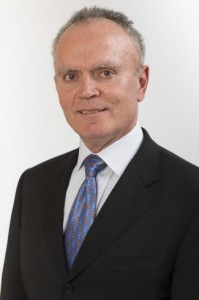 Actuary Fred Vettese had a couple of interesting (and controversial!) articles in the Globe & Mail recently that may give some near-retirees who were planning to defer CPP benefits until age 70 some pause.
Actuary Fred Vettese had a couple of interesting (and controversial!) articles in the Globe & Mail recently that may give some near-retirees who were planning to defer CPP benefits until age 70 some pause.
The gist of them is that because of inflation, those nearing age 70 in 2022 might want to take benefits sooner than later: despite the almost-universal recommendation of financial pundits that the optimum time to start receiving CPP (or even OAS) benefits is at age 70. From what I glean from Vettese’s analysis, those who are 69 this year should give this serious consideration, and possibly those who are currently 68 (or even 67!) might also think about it.
You can find the first piece (under paywall, Sept 27) by clicking the highlighted headline: Thanks to a Rare Event, Deferring CPP until age 70 may no longer always be the best option.
The second, quite similar, article ran October 6th: Deferring CPP till 70 is still best for most people. But here’s another quirk for 2022, when inflation is higher than wage growth.
Certainly, Vettese’s opinion carries weight. He is former chief actuary of Morneau Shepell (LifeWorks) and author of several regarded books on retirement, including Retirement Income for Life.
My own financial advisor [who doesn’t wish to be publicized] commented to his clients about these articles, noting that they:
“aroused interest among some of you on when to begin receiving the Canada Pension Plan (CPP) given an unusual wrinkle that has occurred over the past couple of years where it may be more beneficial to not defer it to 70 in order to maximize the dollar benefit. It is particularly relevant for those who are within a year or two of approaching 70 years old and have so far postponed receiving CPP … My take on the piece is that if you are not receiving CPP and you are closer to 70 years old than 65, then the odds move more favourable to taking it before reaching 70. That is particularly true if there are health concerns that affect longevity.”
I must confess that I found Vettese’s thought process hard to follow all the way, but I respect his opinion and that of my advisor enough that it altered our own CPP strategy. People who had originally planned to take CPP at age 70 early in 2023 may be better off jumping the gun by a few months, opting to commence CPP benefits late in 2022. This is because of a unique “quirk” in the Canada Pension Plan that is occurring in 2022, whereby “price inflation is higher than wage inflation.”
Personally, I took it at age 66 (3 years ago) but we had planned to defer my wife Ruth’s CPP commencement till 70, still about 18 months away. Vettese himself turns 70 in late April [as do I] and in an email he clarified that because of the inflation quirk, he’s taking his own CPP in December: 5 months early. But as his example of Janice below demonstrates, even those a year or two younger may benefit by doing the same.
A lot is at stake with such a decision, however, so I would check with your financial advisor and Service Canada first, or engage a consultant like Doug Runchie of DR Pensions Consulting, to make sure your personal situation lines up with the examples described in the article.
2022 is the exception that proves the rule

Vettese starts the first article by recapping that CPP benefits are normally 42% higher if you postpone receipt from age 65 to age 70. However, he adds:
“Almost no one knows – and this includes many actuaries and financial planners – that the actual adjustment is not really 42 per cent; it will be more or less, depending on how wage inflation compares with price inflation in the five years leading up to age 70. It turns out this arcane fact is crucial. The usual reward for waiting until 70 to collect CPP is that the pension amount ultimately payable is typically much greater than if you had started your pension sooner, such as at age 65. In 2022, that won’t be the case. As we will see later on, someone who is age 69 in 2022 and who was waiting until 70 to start his CPP, is much better off starting it this year instead.”
Those most directly affected are people over 65 who have not yet started to collect their CPP pension. Here’s how he concludes the first article:
“In a way, 2022 is the exception that proves the rule. It is the result of COVID, a once-a-century event, creating a one-year spike in price inflation without a corresponding one-year spike in wage inflation. This analysis, by the way, has no bearing on when to start collecting the OAS pension.
This should send an SOS to financial planners and accountants, as well as retirees who take a DIY approach. Deferring CPP will usually continue to make sense but not necessarily in times of economic upheaval.”
In an email to Fred, he sent me this: “I wouldn’t spend too much time on the Wade example (first article). Situation is rare. More common is the Janice example (second article). It applies just as I state in the article.”
Example of those turning 68 early in 2023
For the Janice scenario, Vettese describes someone currently age 67 who had planned to start taking CPP benefits in April 2023, a month after she turns 68:
“Because of her contribution record, she is entitled to 90 per cent of the maximum CPP pension. This works out to $17,415 a year if she starts her pension in April, 2023 – assuming the 2023 CPP earnings ceiling will be $66,500. If this amount looks high, it is because it includes an actuarial adjustment, which is a boost in pension that the CPP gives to encourage people to postpone the start date of their pension. So in the case of Janice, who would be starting her CPP pension 36 months after turning 65, the actuarial adjustment would be 25.2 per cent.”
Then Vettese asks what would happen if Janice instead wants to take her CPP in December 2022: Then the actuarial adjustment would be only 22.4% because it is just 32 months after she turned 65. Then her starting CPP pension would be $16,441 rather than $17,415.
“This is where the quirk comes into play. It is customary in most pension plans that provide inflation-based increases to grant only a proportional increase in the year after the pension starts.”
Vettese explains that if the full year’s increase is 6.3%, the increase for someone who started their pension halfway through the previous year would be 3.15%. However, CPP is different, as it provides the full year’s increase effective Jan. 1: “even if the pension was paid for just one month in the prior year.” So Janice’s CPP pension of $16,441 would be increased on Jan. 1, 2023 by the full inflation adjustment for 2022, which Vettese estimates will be 6.3%. That puts her pension at $17,477 as of Jan. 1, 2023, which is more than if she had waited until April, 2023.
“By starting her pension four months sooner, Janice gets four extra months of payments (worth $5,738) plus she gets a slightly higher CPP pension for the rest of her life. If that isn’t enough, starting earlier means she won’t have to contribute to CPP in 2023 if she still has employment earnings.”
While I wouldn’t be surprised if Vettese’s articles spurred a number of conversations between financial advisors and clients in their late 60s, Vettese did close his second article with a reminder that this particular unique gambit may only apply late in 2002:
“…. My advice to defer CPP until age 70 is still the best course for most people in most years. Doing so usually provides the highest actuarial present value and maximizes the amount of inflation-protected pension that the average Canadian will receive. It might be only this one time that you will want to start your CPP pension a few months earlier.”


Good morning M. Chevreau,
I have been reading your chronicles for a quite a while (Couch Potatoes, MoneySense and M. Bortolotti). Thanks for all the good advices.
Being 66, and decided on delaying my pension, yes M. Vettese advice is shaking my thoughts.
Do you know any fee only advisor in Quebec who could counsel me on when to hit the pension button! I have all my infos, but being a DIY I feel I need help on this.
I wrote to M. Runchie, but the CPP is slightly fifferent then the QPP so he can’t help me.
Best regards,
Louis
Thanks, Louis
The way I read the column was if you are 68 or 69 this year, then consider taking CPP early before end of 2022 in order to take advantage of this unique inflation adjustment. At 66, it seems a tad early. I don’t know the Quebec equivalent of Doug Munchie.